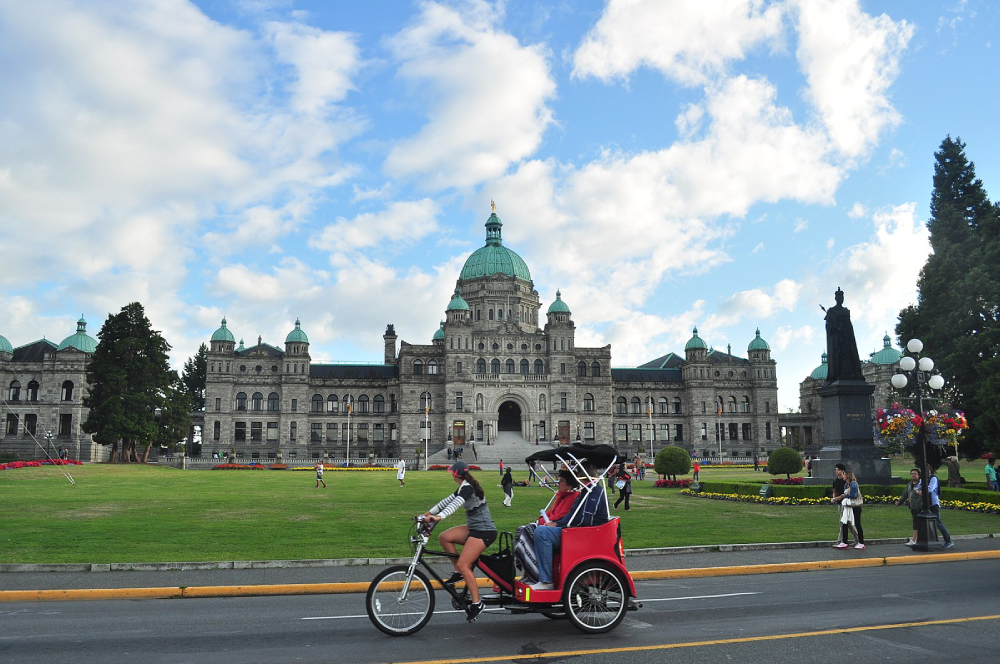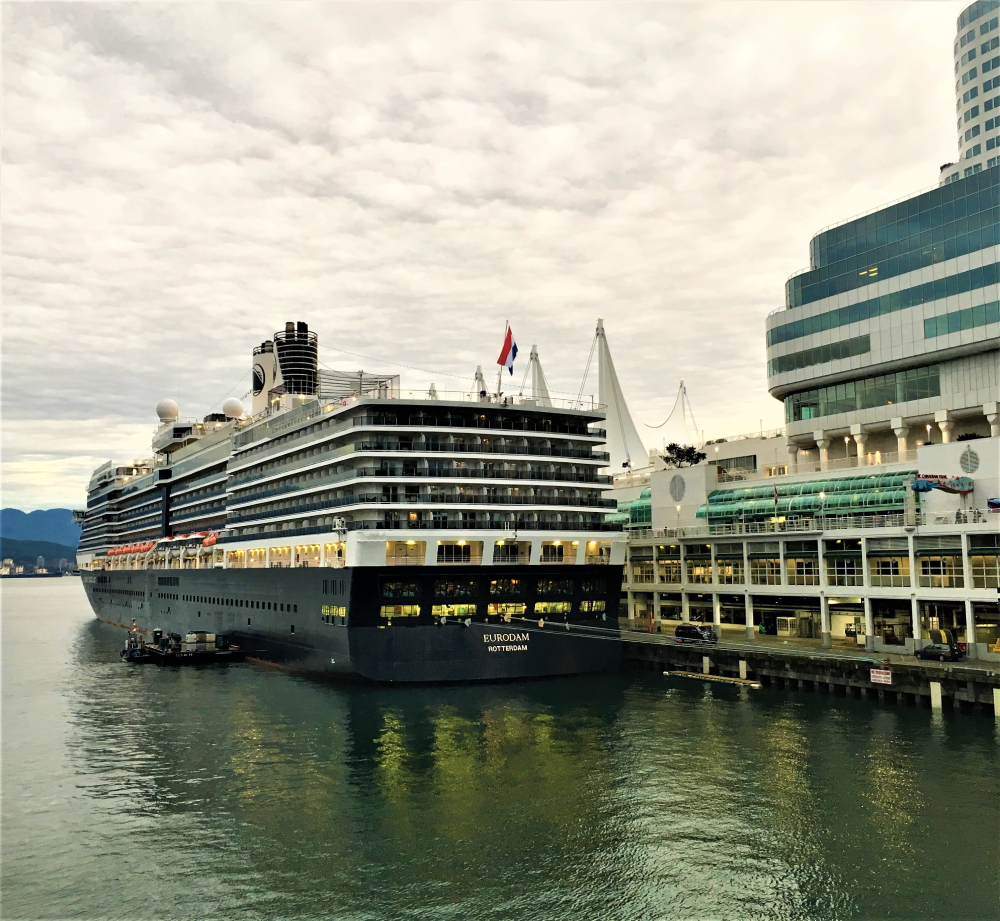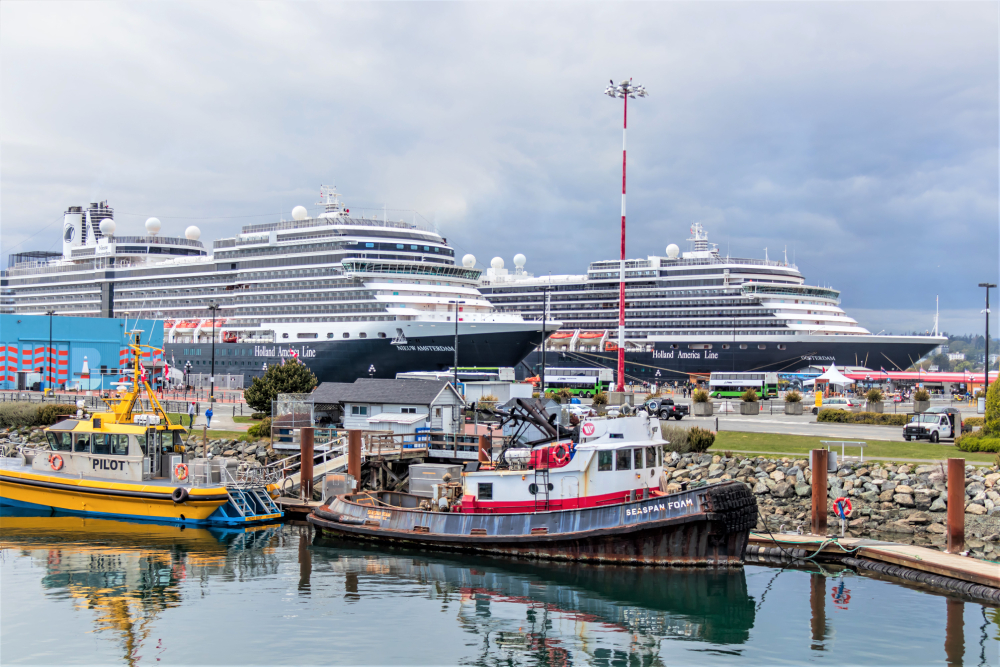These days, almost everyone is looking for a lifeline. Virtually every household and industry has been affected by the global pandemic and British Columbia’s tourism industry, the province’s third-largest economic sector, has been particularly hard hit.
Starting next month, some tourism workers in Victoria and Vancouver will truly feel the pinch. April is traditionally the beginning of the Alaska cruise season and cruise ship passengers bring cash to port cities. According to Cruise Lines International Association, an industry promoter, British Columbia accounted for nearly 70 per cent of Canada’s take of the cruise industry’s total industry output in 2016, generating $2.21 billion in economic activity.
Victoria alone was scheduled to see 800,000 cruise visitors this year. All that is now in jeopardy.
Andrew Capeau is the president of Victoria Pedicab Company, which provides employment for 40 to 45 people during the peak season (June through September). “For us,” Capeau says, “the cruise business means the world, the vast majority of our revenue.”
Like many small- and medium-sized business owners, Capeau will be looking for details of the federal government’s recently announced plan of (up to) C$900 biweekly support for workers. The announced 75 per cent wage subsidy for small business does not fit his business model because the individual pedicab drivers who work for him are technically subcontractors.
“Right now, we’re just trying to keep the lights on. I have $45,000 of capital investment out. Then the rug got pulled from under our feet, just as it has for many in the tourism industry.” He points to the recently announced closing of the flagship Fairmont Empress Hotel as well as the Hotel Grand Pacific.
U.S. President Donald Trump has made clear his intention to support the battered cruise lines. “We are working very closely with the cruise line industry,” he told reporters recently. “We’re going to be helping that industry.” And U.S. Vice-President Mike Pence included the cruise lines in a list of “vital” American industries in need of government help.
But on March 25, the U.S. Congress passed a US$2 trillion stimulus plan that seems to exclude foreign corporations like the cruise lines.
Two days later, Trump said he likes the idea of allowing the cruise lines to re-register as American corporations as a workaround to the intentions of the legislation.
But there are loud voices of protest, and admonishment from economists who would remind the president that in a capitalist economy some corporations and industries must be left to sink or swim.

Megan Greene, a global economist, echoes the sentiments of many in cautioning against bailing out corporations like the cruise lines. Government has a clear role to play in “protecting the most vulnerable in society, helping businesses stay afloat until the crisis has subsided, and supporting industries that are vital to the economy,” she wrote in the Washington Post. But today’s crisis brought on by the pandemic calls for economic triage, she explains, not government largesse.
There is a compelling reason to leave the cruise industry to its fate: it’s neither vital nor American, let alone Canadian. Offering cut-rate and luxury holidays, cruise lines do not provide essential transportation or employ many North Americans. Many would argue they are terrible corporate citizens.
Ross Klein began studying the cruise industry in the 1990s and is now recognized as one of the world’s leading authorities on the subject. A sociologist at Memorial University in Newfoundland, he has been called to testify before the U.S. Congress on the cruise industry and has published extensively on its impact in port communities.
“There’s nothing vital about the cruise industry to American interests,” Klein says. “From the beginning, [the industry] was not directed primarily by American citizens, it was never meant as a source of income for American citizens, and it still continues to be an industry that is largely run offshore. That’s not an American company — that’s a tax shelter.”

As of 2018, Carnival, the world’s largest cruise line, reported that it had 12,000 corporate employees and 88,000 crew members worldwide. Of those actually working on ships, only a tiny fraction (4.4 per cent) were from North or Central America. American or Canadian citizens were not specified.
By contrast, the airline industry employs over 740,000 full and part-time workers in the U.S. alone and provides meaningful transportation for business, tourism and cargo. Although many cruise lines are headquartered in Miami, Florida, the majority are incorporated in countries such as Liberia, Panama and Bermuda in order to avoid U.S. taxes, regulations and labour laws.
The cruise industry has a well-documented history of flouting North American environmental laws regarding air quality and, as recently as 2019, Carnival pleaded guilty to covering up their environmental crimes, such as illegally dumping grey water in Glacier Bay National Park and other prohibited places, and knowingly allowing plastic, which poses a severe and persistent threat to marine life, to be discharged into the marine environment in the Bahamas.
Klein asks, “Why would the U.S. government take a corporation that took in three and a half billion dollars in net profit last year [such as Carnival], and paid no taxes, and give them money for free?”
Ultimately, that’s a question for U.S. lawmakers and taxpayers. Canada has announced no such bail-out plans. But what of the cruise industry’s claim of generating $2.21 billion in economic activity here in British Columbia?
“That number’s a joke,” Klein says. “It’s not even in the realm of being a being reliable. If we looked at the port visits, we know that those figures are overstated by at least 25 to 33 per cent.”
Klein has warned port communities and the media about accepting economic impact figures provided by the industry. His research has found the insider industry reports not only overstate economic impacts, they do not take into account the hidden fees — kickbacks — paid by local tour operators and merchants to get preferential treatment from the cruise ships.

For British Columbians, Klein says, the question is this: what will our federal and provincial governments do to resurrect a tourism industry that’s not reliant on what he calls disease-carrying ships?
“B.C. is a tourist destination unto itself,” Klein says. “Why wouldn’t they be marketing BC Ferries as a way of seeing the Inside Passage as opposed to supporting a foreign corporation? It’s a beautiful ferry ride from Vancouver up to Prince Rupert. Better than any cruise around the west side of Vancouver Island.”
While he admits the current shutdown of the cruise lines is going to hurt some local businesses, he says, “It’s a reminder that relying on one source of income is never wise.”
That might sound like cold comfort to those who have come to count on the cruise ships. Victoria, already Canada’s busiest cruise ship port, was set to become a home port for the Alaska cruise industry this year, which means it would see more revenue from passengers who begin and end their cruise in the city. They were looking forward to another record-breaking season.
Should U.S. taxpayers bail out the cruise lines? What should the governments of Canada and British Columbia do?
“Help small businesses first,” says Andrew Capeau. “We are the most vulnerable and it would benefit more locals.... We’re taking it on the chin. We don’t have the vast resources like the large corporations. I can get through one year. Next year? I don’t know.”
When cruise ships arrive, Capeau says passengers are “blown away” by what they experience in Victoria. It leaves an indelible impression on them and they go home to tell others about how gorgeous the city is.
While he waits to hear about the fate of the 2020 cruise ship season, and details of government support for workers and small businesses, Capeau says he’s trying to drum up more local business for his pedicab drivers to diversify their core clientele. He’s also speaking with grocery stores about partnering in home delivery during this period of physical isolation.
“It would be nice to contribute,” Capeau says. “It would be great to be out there helping out.”
“We’re all in this together. I feel tighter in my community — more connected to the people around me. There are a few silver linings.” ![]()
Read more: Local Economy, Coronavirus, Federal Politics, BC Politics
















Tyee Commenting Guidelines
Comments that violate guidelines risk being deleted, and violations may result in a temporary or permanent user ban. Maintain the spirit of good conversation to stay in the discussion.
*Please note The Tyee is not a forum for spreading misinformation about COVID-19, denying its existence or minimizing its risk to public health.
Do:
Do not: